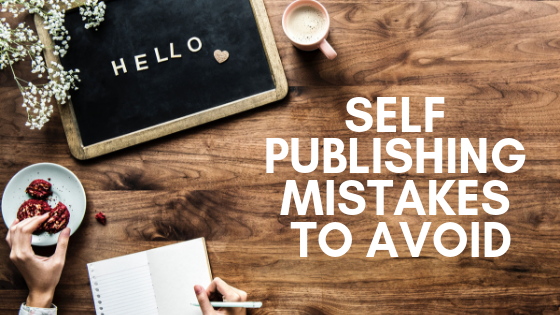10 Self-Publishing Mistakes to Avoid
Writing a book is hard, and so is publishing. You might have approached traditional houses and faced multiple rejections. It’s okay. Happens to most of us. It’s a hard world out there. Now, you have decided to self-publish. I hope you have read up on what all self-publishing includes and how it works. Assuming that, let me tell you the self-publishing mistakes to avoid unless you want to see your book fail (Obviously, no one wants that. So pay attention)
1. Not enough Research: Self-publishing is not going to a publishing house and paying money. You need to know the size of the book you want, the gsm of the paper, the type of editing services, distributors, formatting, and typesetting. And that’s not all. Read up and talk to new authors if that helps. Don’t let anyone scam you. Ask questions and be aware.
2. Skipping Editing: You have edited the book by yourself. It’s not enough. There are three types of editing. Developmental, Substantial Editing and Proofreading. Find out what kind of editing service you require for your book. Editors are experts when it comes to grammar, typos and spelling errors. They can smell plot holes, inconsistencies in the plot, poor character building and clichés from miles away. Get your book as clean as possible. You don’t want to be a writer who uses ‘your’ and ‘you’re’ wrong.
3. Designing the Book Cover yourself: Just don’t do it. You could be a good illustrator or good at Photoshop, but it’s not the same as designing a book cover. An amateur book cover will never stand out, and believe me or not, your book will be judged by its cover. There are two types of cover. One is made from shutter stock images or photos. Another one is illustrated, or hand designed, you may call it, by the designer. Don’t skimp on that.
4. The not-so-little things: Yes, the title of your book is very important. Take time to come to a final title. Beta-test it by asking people what it sounds like and all. Make sure the description of your book is edited and formatted perfectly. It shouldn’t be too revealing. The blurb is very important for readers who chance upon your book. The blurb is all they have to decide whether to buy the book or not. Also, the author’s bio. No typos. Use the right language keeping in mind the tone of your book.
5. Rushing in the publishing process: You took two years to write down your book. How can you expect it to come out in a month? I understand the excitement to get it in your hands and know how people take it. But you must ensure it’s the best version you can send out. The editing process generally takes time. Be patient. Make sure everything is set. Double-check, triple-check or ten times. Don’t just let it go because writing it was hard enough.
6. Over Pricing or Under Pricing: Price your book too high, and no one will buy it. The price is too low, and people may think it’s not good because it’s cheap. Or you might end up underselling the worth of your book. Research the market before you decide on the price. Keep in mind that you might have to sell at a discount or do some promotional activity. Set the MRP, keeping in mind the marketing plans.
7.No one reads your book before publishing: Yes, the opinion of family members and friends count, but they might not be the kind of readers you are targeting. And let’s accept it. They can’t give you an honest review or break your heart because they have seen you work so hard on your book. Sign up for beta readers or reach out to some writer’s community. Remember, you can change and make your book better before it’s published. You can’t do it afterwards.
8.No plans for Marketing: Published your book? It’s available online? Now sit back and relax because the sales will roll in. Not really. That’s not how the world works. You will have to reach out to reviewers, use your blog strategically, reach out to other bloggers, and so much more.
9. Selling through one distributor: You must ensure your book is available on different channels. You want your book to reach as many people as possible. Explore as many options as you can. Also, don’t feel shy to use your personal contacts. They will be your first buyers and help your book by word of mouth.
10. Quitting after the first book: You put in all your efforts, made sure everything was just right, and still, your book didn’t attract as many readers as you thought it would. The trick is not to give up. You write for a reason. Remember why you started on this journey. There are a lot of authors who failed as debut author, but once their one book hit the best sellers list, the rest of them followed. Stay strong!
If you want to talk to a publishing mentor (for free), register with us and schedule a call with us.
.
If you wish to publish your own book, we can assist you with all your publishing and marketing needs with years of experience in this field.


Leave a Reply